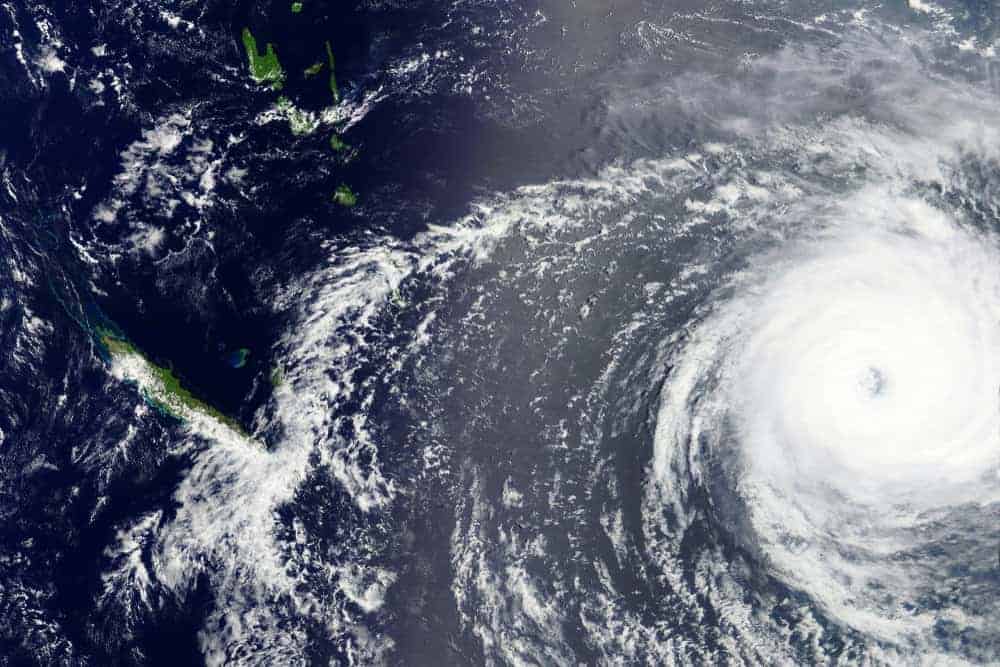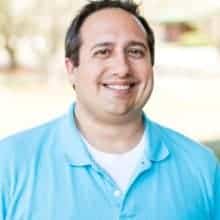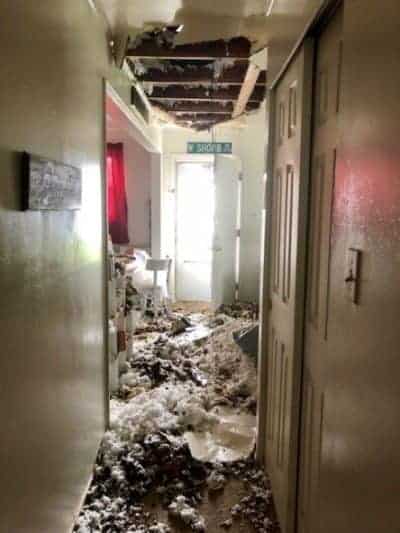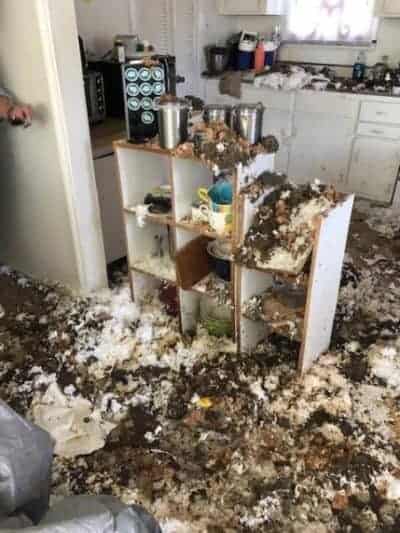In my home of Onslow County, students last went to school on Sept. 10. Then Hurricane Florence hit. Students at my school, Swansboro High, finally were able to come back to class on Monday, Nov. 5, a full 54 calendar days since their last class.
Our school district, and particularly our superintendent, Rick Stout, pulled off a nearly Herculean effort in order to get all 39 schools in Onslow County up and running during this time at a cost of over $125 million. This was, hopefully, a once-in-a-lifetime experience. However, I believe that it taught my district, my community, and I many things that we can never forget.
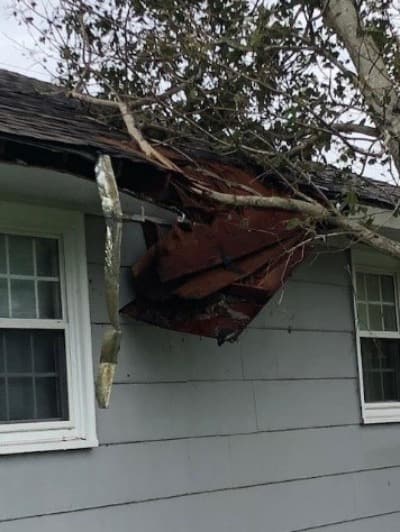

The hurricane directly impacted my home, making it unlivable for the foreseeable future. I am one of six Swansboro High School teachers and one of 90 Onslow County teachers that were displaced either temporarily or permanently by the storm. During the storm, my wife, dogs, and I went to a hotel in Jacksonville, NC, about 20 miles inland from our home. We decided to stay that close because we knew based on past experiences, that flooding would occur that might keep us away from the area had we gone further.
When we went to see our home four days later, the front looked perfect. Living across from the water, we worried about the water-level rising and flooding our home. That never happened though. Instead, the hurricane’s damage was solely to the back the house. Repeated gusts made a tree continuously batter the roof until part of it caved in. Also, many shingles were missing all throughout the back side of the house allowing days of rain to pour in.
We walked in thinking that one roll of paper towels taken from our hotel would clean up everything; instead, the realization that much of our home was gone set in. When we entered our home, the kitchen and living room ceilings had completely collapsed in, bringing down pounds of insulation. Wires were hanging down from all sections of the home. In the next few days, the ceilings continued to collapse in the hallway, bathroom, and laundry room causing further damage. As we gazed through the empty space where our ceiling should be and were able to see the sky beyond, we realized that this event would be drastically life-altering.
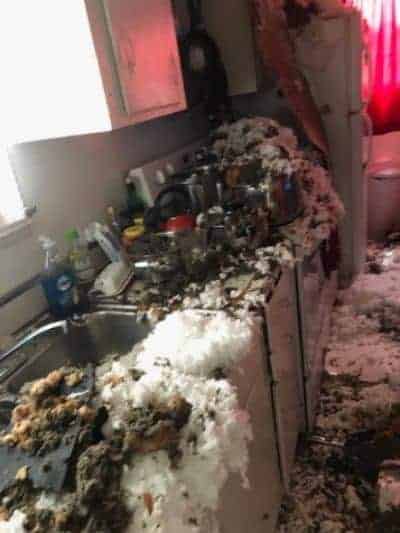

Thankfully, after two weeks of living in a hotel with our dogs, we found another place where we could stay until repairs were made. Currently, the estimated time to make repairs is eight to 12 months due to the lack of contractors and severe amount of damage done to other homes. We were lucky to get another place to live so quickly when many people in our area are still living in homes that are borderline unlivable or condemned. Insurance allowed us to replace much of what was lost and start adjusting to our “new” normalcy. But with all of the visible damage in the area and about four out of every five houses having a tarp on their roof, I knew that the lives of my students might not ever be the same again.
Back to school, again
For our first day back in class, I learned much more about my students than I expected. Of my 80 students this semester, 19 of them are displaced from their homes either temporarily or permanently. When I spoke with our school counselor, she told me that at Swansboro High School, out of our 1,110 students, 47 of them completely lost their home.
Also, another 275 students that she knew of were temporarily displaced until repairs can be made, though the actual number could be closer to 350. In the entirety of Onslow County Schools, we have over 26,000 total students. Extrapolating our data to the other schools, it is both astonishing and disheartening that so many students were impacted by the hurricane.
With all this change, I wanted to see what my students, all high school sophomores or seniors, learned or experienced during their 54 day “hurrication.” I had them write a short essay, either anonymously or using their first name, answering the following questions as honestly as they were willing.
- How did the hurricane impact your family/home?
- What did you learn about your family from the events following the hurricane?
- What did you learn about your community/school from the events following the hurricane?
How did the hurricane impact your family/home?
For the first question concerning how the hurricane impacted your family/home, here were some of the responses:
“Florence ripped off the roof and the excessive rain flooded my house. There was an extreme amount of water damage to the point where it is not livable. At the moment, my family is living with my grandparents and are in the process of rebuilding our home and our lives.”
“Hurricane Florence destroyed my home with extensive flooding in the basement and the ceilings falling in. Additionally, my mother’s business was destroyed due to water damage. Our house is not projected to be fully redone until after graduation in June and my mom will most likely be closing the doors to her business permanently.”
“The storm separated my family and ruined our upstairs. Everything in my room and closet was in some way lost. Mold grew in our walls and on our clothing while the power was out, and we need to get our roof and walls replaced.” — Alana
“My family and I got home from Georgia to find a tree through the fence, another on the shed, and the entire ground floor of my house damaged by water. Both my parents’ room and my room were destroyed from water damage.” — Samantha
“My family came home from evacuating to a ruined house. Most of our furniture was destroyed and we spent many weeks salvaging what we could. We stayed with friends for about 6 weeks until we could relocate to another home.”
“We had to move out of our home because the house is basically 85% gutted at this point trying to make repairs.”
“My home and our things were just gone. It will never be the same for me or my family.”
What did you learn about your family from the events following the hurricane?
For the second question concerning what you learned about your family, here were some of my students’ responses:
“I learned that my family has a lot more in common than we realize. We all know how to make each other laugh, support one another with our goals, and provide a shoulder for each other to lean on during the darker days.” — Niya
“I worry that the cost of rebuilding our home will make sending me to college more difficult. I am going to try to get a job so that I can try to save up and help my parents out.”
“Following the hurricane, I was reminded of how thankful I am for my family. Having your house destroyed really put things into perspective and made me realize how grateful I am to have my family during this difficult time.”
“My family is going through stressful times right now, but we still make time for movie nights and other bonding to maintain normalcy despite all the struggles.” — Samantha
“I learned that my mom can handle a lot of stress thrown at her while my dad is deployed.”
“I learned that my family values our materialistic things rather than their safety.”
“I learned that my family is very generous, but that my dad couldn’t care any less about my safety during the storm and never called to check on me.”
“I learned that my family cares more about each other than I believed. My step-dad made us all leave while he stayed behind to care for our six cats.” — Matt
“I learned that my parents are not as perfect as I thought. They crack under pressure, but they do put the importance of our lives and safety over any material object.”
“My parents showed my brother and I that the worst thing to do in a situation is panic. During and even after the rain, my parents demonstrated resourcefulness and how important it is to help those around you.”
“I learned that my family would put aside their differences to aid each other in a time of need.”
“I learned to cherish all of your family because they are all you really have. Anything bad can happen at any given time, but your family will be there for you.” — Kayla
What did you learn about your community/school from the events following the hurricane?
For the third question concerning what you learned about your school or community, here were the responses:
“The aftermath of Hurricane Florence truly showed how tight-knit our community is. Seeing several community members out volunteering and helping others showed how willing we are to lend a hand during this difficult time.”
“I learned that our community is strong when they come together, and great things can be accomplished. Our school did so many things to benefit students and staff in this time of need.” — Hailee
“I learned how generous our community is. The volunteer work after the hurricane was unbelievable. The community really came together to help out the less fortunate.” — Connor
“I learned that many people were underprepared for the hurricane and that lots of people leave their animals.”
“My community wasn’t equipped with the skills to tackle the rebuild after the hurricane. But we did what we could to help the less fortunate.” — Gavin
“I learned that our poverty rate is much higher than it appears. Many people who had little before the storm now have nothing. I wish I could do more for them.”
“I oversaw the food distribution at the Rotary Center. It was amazing to see how many people needed help and how many people were there to help them and Swansboro. Also, our school is way more involved than I thought it was.”
“I learned that Swansboro High school has heroes working there. They stayed at the shelter throughout the storm and made sure that everything and everyone was taken care of.”
“Our community has some of the most amazing people on the planet. So many locals teamed up in groups to help so many people in the area. Companies made donations and worked for free. Teachers put their personal lives aside to focus on the students’ well-being. It warms my heart to know that there are such kind people in our community. Coming from a big city as a transfer student this year, I was worried that the “small town” feel of Swansboro would be underwhelming. In a time of crisis, a small town with such awesome people is exactly what people need.” — Niya
“I learned that I should be far more appreciative of my school and community. It was surprising just how fast my town was able to get back up on its feet after being slammed by devastation. I am also very thankful for my school and its administration. They could have simply done nothing and waited until school returned before addressing anything, but they instead provided field trips and educational opportunities that I would not have otherwise had the opportunity to go on. By providing these college trips and opportunities, I had the chance to get a feeling of what I want in my future.” — Calyssa
Returning to normalcy
Even though we have only been back to school for two days when I write this, I can see that my students have grown. The experiences of Hurricane Florence clearly changed their lives, some for the better, but mostly for the worse. Experiences like this can alter a student’s life permanently, but that’s where my role as teacher expands.
My job is now to give my students a sense of normalcy, helping them overcome this tragedy and move forward with their lives and their education. I’ve learned that nothing can prevent a hurricane and even the best preparation might never be enough. But it isn’t just about the preparation, it is about how you recover.
Being able to rebuild yourself and your community is a lesson that normally would go untaught in public schools. However, this hurricane is giving my school district, my community, and I the chance to mend, repair, and be better than ever for our students.
